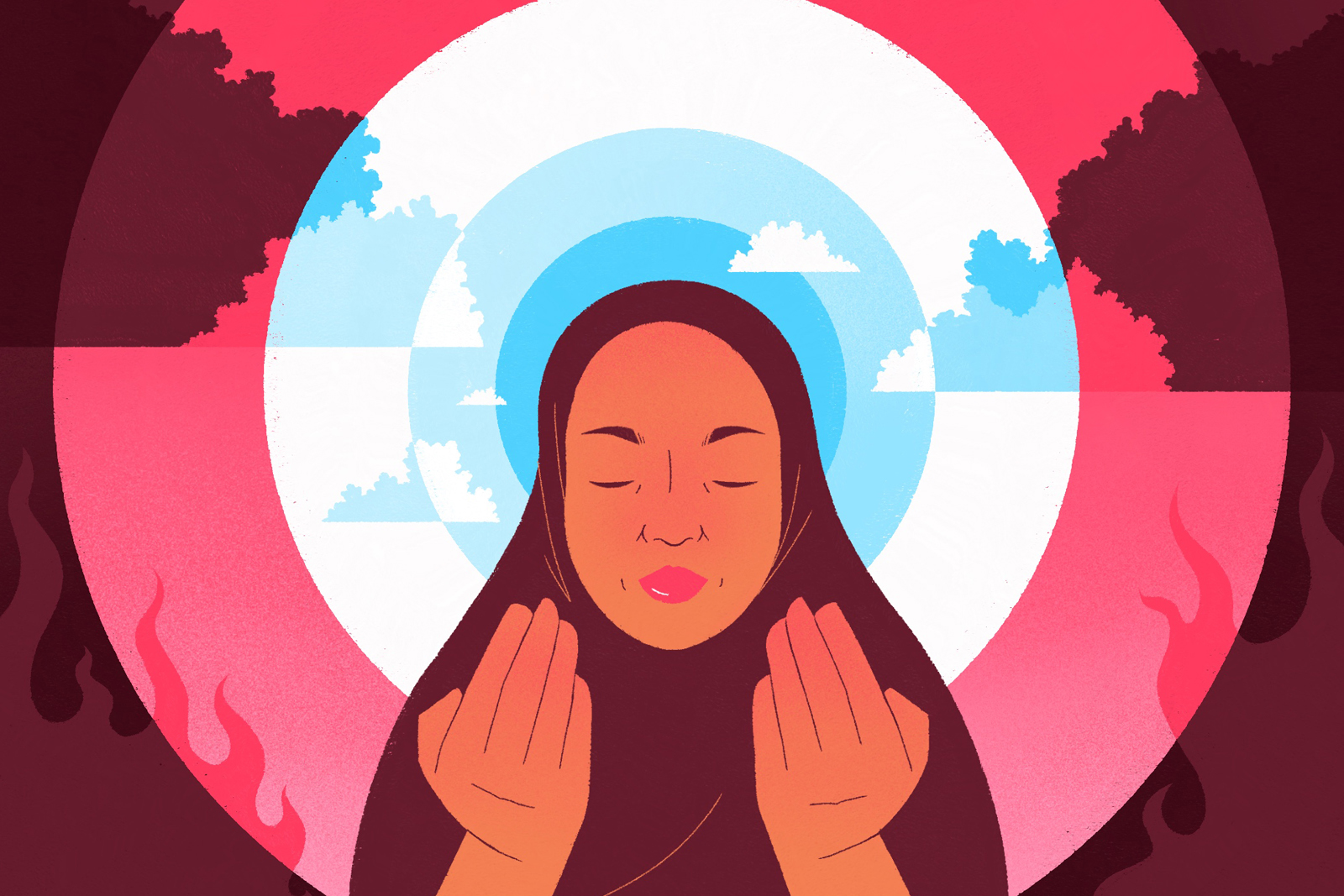I’m in my aunty era, blown away by the galloping of time
In her first column for Hyphen, writer Yassmin Abdel-Magied reflects on the new Islamic year and why parts of our lives seem to be stuck on repeat
–

The end of Dhu al-Hijjah comes at you fast. One day you’re trying to make the most of the last 10 days of Ramadan and furiously prepping for Eid al-Fitr, the next you’re watching cotton-swathed pilgrims on the hillside of Mount Arafat on the news, realising the end of the Islamic year is upon you, whether you’re ready for it or not.
Growing up, I was accustomed to the elders lamenting about how quickly time had passed, making comments about “how much I’d grown” and constantly praying that, inshallah, we would always be gathered in times of joy. It feels strange that I have now become one of these “elders” — if not in wisdom then certainly in turn of phrase. I am blown away by the galloping of time, by the speed at which my adopted nieces, nephews and niblings have grown, by the pace at which the world is changing around me. I’m constantly exclaiming “where did the month go!” and making anodyne observations about how even the seasons seem to be the briefest of visitors. Yes, it is true. I am in my aunty era.
But while some things are in constant motion, it feels like other aspects of our lives are stuck on never-ending stochastic repeat.
How is it that we are bearing witness, yet again, to wanton massacres live streamed on our screens? Between adverts for toothpaste and junk AI tools, we find ourselves grappling with the psychic surreality of watching footage of war crimes amounting to genocide, and are somehow expected to live life, business as usual. And though it feels like it should be unbelievable, we have been here before, watching innocent people being murdered by a vicious and unrepentant nation state. Whether during previous Nakbas, or the invasion of Afghanistan and Iraq, or those killed across Sudan and South Sudan, or the Rohingya in Myanmar — it makes me sick to think that the list could go on. These are only a handful of the conflicts I have witnessed in my lifetime alone.
These crimes serve as a brutal reminder that standing against injustice is not a single event but a practice. Yes, the moral arc of the universe bends towards justice, but only because of the efforts and force of the many pushing it in that direction.
So much has changed, and yet it feels like so much stays the same. The week of 17-23 June was Refugee Week. I grew up under Australian prime minister John Howard, famous for barbaric border policies that set the precedent for much of Europe and the UK’s immigration — or lack of immigration — choices today. But, of course, John Howard was not the first Australian leader to lay bare exclusionary entry requirements. These were baked into the very idea of the formation of the settler colony, in the White Australia Policy that “put in plain and unequivocal terms”, according to the Attorney-General Alfred Deakin (1901), the “prohibition of all alien coloured immigration” for the express desire to “secure a white Australia”. This was as much a reflection of the English desire for a “white state” as anything else, a reminder that as far as we may travel, some things seem to be stuck in stasis.
When I sat down to write this reflection, it felt important to name the context we’re living through in this moment. It feels almost impossible, doesn’t it? The violence, the cruelty, the lack of hope. Sometimes, I find it easier to slump into these morose laments, to wallow in the darkness of shameful histories, to justify inaction or fatigue by pointing out the obvious. Indeed, oppression and subjugation have existed for almost as long as we have. We only have to look at the stories of the Qur’an to understand this truth.
But for as long as oppression has existed, so have those who have decided to take against it. So while I may begin by bemoaning the state of our worlds, I can’t stop there. I can never stop there. It is neither in my obstinate character, nor is it how I understand my faith, how I understand what it means to be Muslim. To be in submission to a God who is a God of justice, of mercy, of peace. To submit to the very concept of faith, in this world and in the next. After all, that is part of the story of Eid al-Adha.
So, as another Islamic year comes to an end, I remind myself of the importance of practising faith. Not only going through the motions of prayer and fasting, ticking off the pillars like a lifelong to-do list. I mean exercising the muscle of faith. Faith in a fairer world, faith in Allah’s plan, faith in us — the people — resisting, beating back the creeping tendrils of tyranny that seem longer and stronger by day. The practice of faith is not only in the ritual but in a mindset that imagines a better world is possible, and believes it. In knowing that while things might feel like they are the same, nothing, in fact, remains static.
Topics
Get the Hyphen weekly
Subscribe to Hyphen’s weekly round-up for insightful reportage, commentary and the latest arts and lifestyle coverage, from across the UK and Europe
